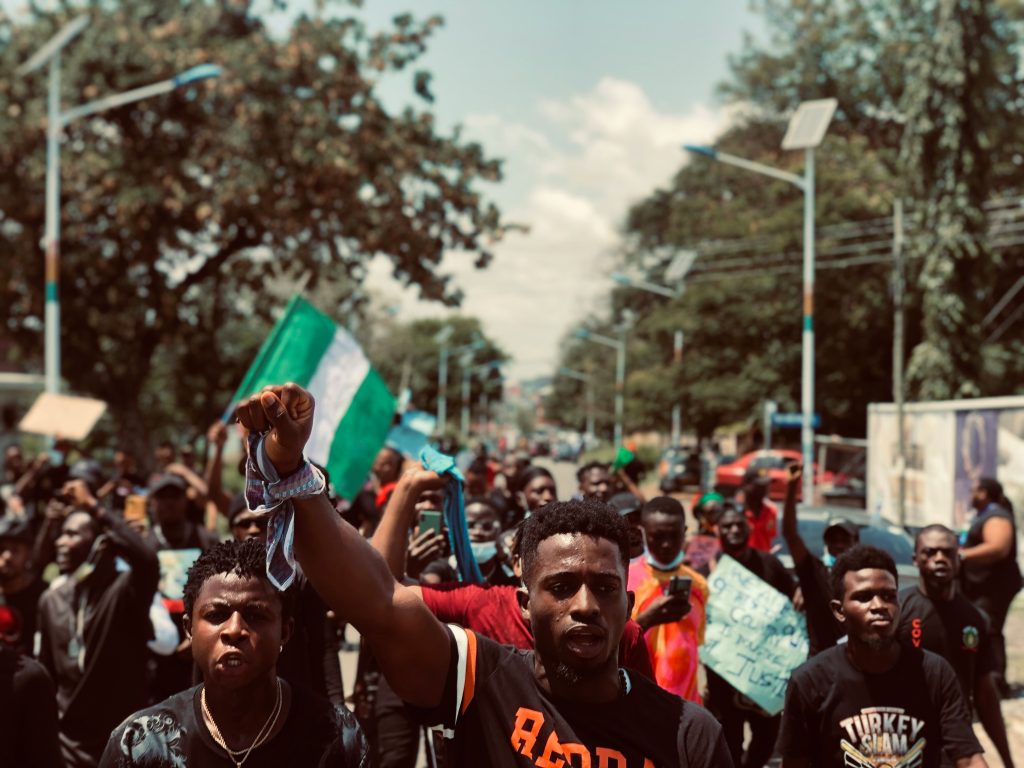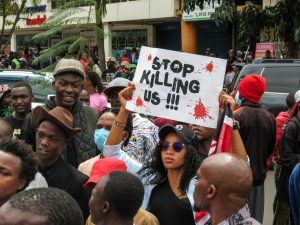Kenyan Blogger Albert Ojwang Laid to Rest as Outrage Over Police Brutality Grows
3 min read
Kenya mourns journalist Albert Ojwang as calls grow louder to end police brutality
Kenyan Blogger Albert Ojwang Laid to Rest as Outrage Over Police Brutality Grows
A Farewell to a Voice of the People
Kenyan Blogger Albert Ojwang laid to rest. The town of Homa Bay witnessed an emotional outpouring on Friday as thousands gathered to mourn the death of Albert Ojwang, the 31-year-old Kenyan blogger and journalist who died in police custody last month. His funeral marked not just the end of his life, but the continuation of a national conversation on police brutality and accountability. Ojwang, known for his bold reporting, was buried amid chants for justice and remembrance. His death, which initially was reported by police as a suicide, was later disputed after an autopsy revealed injuries inconsistent with self-harm, sparking widespread anger.
National Outcry Following Shocking Autopsy Findings

Public outrage exploded after details from the autopsy surfaced, contradicting the official police report. The Central Police Station in Nairobi, where Ojwang died, quickly became the epicenter of national scrutiny. Activists, journalists, and citizens took to the streets, accusing law enforcement of deliberate cover-ups and abuse of power. Demonstrators clashed with police during multiple protests, highlighting the deep mistrust many Kenyans harbor toward the justice system. The Kenyan Parliament even held televised hearings, signaling the seriousness of the matter and the growing public pressure for answers.
Arrests and Investigations Offer Partial Hope
In a rare development, two police officers were arrested in connection with Ojwang’s death. While many see this as a step forward, others remain skeptical, fearing that the case could lose momentum once public attention fades. The arrests came after continuous demands from civil society groups, journalists, and friends of the deceased. Among them, Anna Ngumi, a close friend of Ojwang, made a passionate call at the funeral: “We are not going to rest until justice is done. Remember we are still celebrating 7/7. We will do 7/7 for Albert Ojwang.” Her words referenced the symbolic protest date, July 7th, now being repurposed in Ojwang’s memory.
Ongoing Pattern of Police Violence
Ojwang’s death has reignited Kenya’s long-standing battle with police impunity. Just last month, protests erupted in Nairobi where Boniface Kariuki, a 22-year-old street vendor, was shot at close range by police during a rally demanding justice for Ojwang. The use of force during demonstrations and the high number of deaths in custody have drawn criticism from both local and international human rights organizations. According to watchdogs, at least 20 people have died in police custody in the past four months, while 160 cases of extrajudicial killings and enforced disappearances were reported in the last year alone.
Leaders and Lawmakers Speak Out
The growing list of victims has compelled even elected officials to take a stand. Babu Owino, a Member of Parliament who attended Ojwang’s funeral, delivered a scathing condemnation of the Kenyan police. “Police are supposed to protect life and property, but they are the ones taking lives. Any officer involved in the killing of Albert Ojwang must be arrested, taken to court, and jailed for life,” he declared. Owino’s speech was met with thunderous applause and cries of agreement from mourners who see Ojwang as a martyr in the fight for justice and accountability.
A National Crisis Unresolved
Despite promising reforms, President William Ruto faces increasing criticism over his administration’s handling of police misconduct. When he took office in 2022, Ruto pledged to end extrajudicial killings and systemic abuse within the police force. However, recent statistics paint a starkly different picture. For many, the death of Albert Ojwang symbolizes a wider failure by the state to protect its citizens from the very institutions meant to uphold the law. The pressure now lies squarely on the government to take decisive action to rebuild trust and deliver justice.






